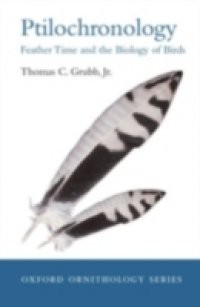This is the first book to summarize the methods, conceptual issues and results of studies using the interpretation of feather growth rates as an index of nutritional condition in birds. The author has coined the term ptilochronology (literally, 'the study of feather time') to describe this technique, which relies on the fact that as a feather grows it produces visible growth bars. Both the technique and its conceptual foundations have been applied worldwide tonumerous studies of avian evolution, ecology, and conservation biology. The author reviews this work, chronicles the various criticisms that have been made, and describes how these have influenced the development of ptilochronology. He goes on to suggest experimental methodologies and analytical techniquesto safeguard against invalid results. A final chapter summarises this new technique's contribution to avian biology, and suggests potential applications and a future research agenda. An appendix details specific measurements and describes the methodology associated with ptilochronology. Ptilochronology provides a practical resource as well as a conceptual understanding of how this technique can be used to address important questions in avian biology. It will be of relevance and use to professional avian biologists and ornithologists as well as to graduate students of avian behavioural ecology, evolution and conservation.

